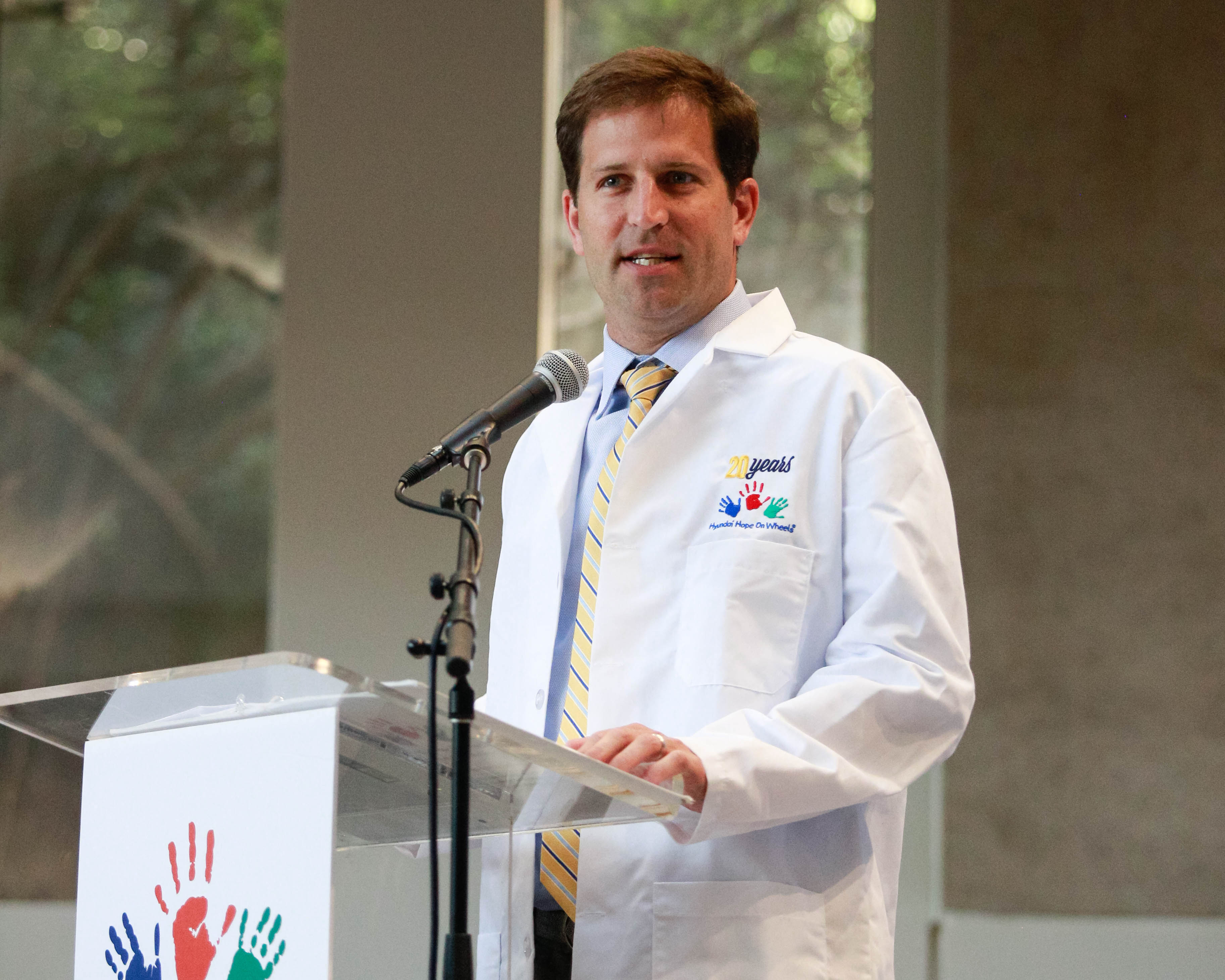
Red, blue and green paint-laden hands pressed against a Hyundai Santa Fe SUV in the UNC Children’s Hospital lobby left a reminder of how the smallest cancer patients leave their mark in the fight against pediatric cancer, underscoring the importance of clinical research.
The handprint ceremony followed the presentation of a $100,000 Hyundai Hope on Wheels Impact Grant to UNC Lineberger Comprehensive Cancer Center. For the past 20 years, Hyundai Motor America and its U.S. dealers have directed donations and a portion of proceeds from every Hyundai sold in the U.S. to support pediatric cancer research through the Hyundai Hope on Wheels program.
Stuart Gold, MD, chief of pediatric hematology/oncology at N.C. Cancer Hospital, the clinical arm of UNC Lineberger, said pediatric cancer research funding like the Hyundai Hope on Wheels Impact Grant “allows us to develop better treatments and improve survival rates for this population. All of us at UNC Lineberger Comprehensive Cancer Center are very grateful for all of the investments Hyundai has made.”

Mike Donahoo, senior manager of merchandising for Hyundai in the southern region, thanked the patients, parents and clinical team members for their bravery and dedication to fighting cancer. “You’re the reason we’re here and why this fight is so important to us,” he said.
Hyundai’s Hope on Wheels program has provided UNC Lineberger with $700,000 in research support since 2011. It previously awarded UNC Lineberger member Ian Davis, MD, PhD, two grants totaling $350,000, and last year it presented a $250,000 grant to Barbara Savoldo, MD, PhD.
Thomas Alexander, MD, MPH, assistant professor of pediatrics in the hematology/oncology program and UNC Lineberger member, said one issue with treating pediatric cancer patients is that only 20 percent of children who have relapsed cancer are enrolled in clinical trials, and the patient population is limited. “With this type of support for clinical trials and infrastructure to perform those clinical trials, we have the opportunity to make (those numbers) better. I’m incredibly grateful to Hyundai for agreeing that that number of 20 percent is not acceptable, and we need to do a better job.”
Alexander noted he was enrolling a patient today in a clinical trial that will benefit from the grant funds. “Without this specific therapy, without this clinical trial and the support to run these trials, this patient would not have the opportunity for any further therapy.”
Hyundai National Youth Ambassador Carter Gates also spoke at the event, sharing his five-year journey with cancer. Gates’ story was a familiar one to many of the UNC Lineberger patients and their parents in the audience. Sandra Thornton, whose daughter Sarah Jernigan, 17, is currently being treated for cancer, said it was comforting to hear other patient stories that mirrored her daughter’s.
It was also reassuring to Jernigan. “It means I’m not going through it alone,” she said.
